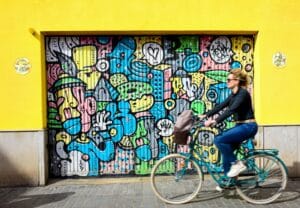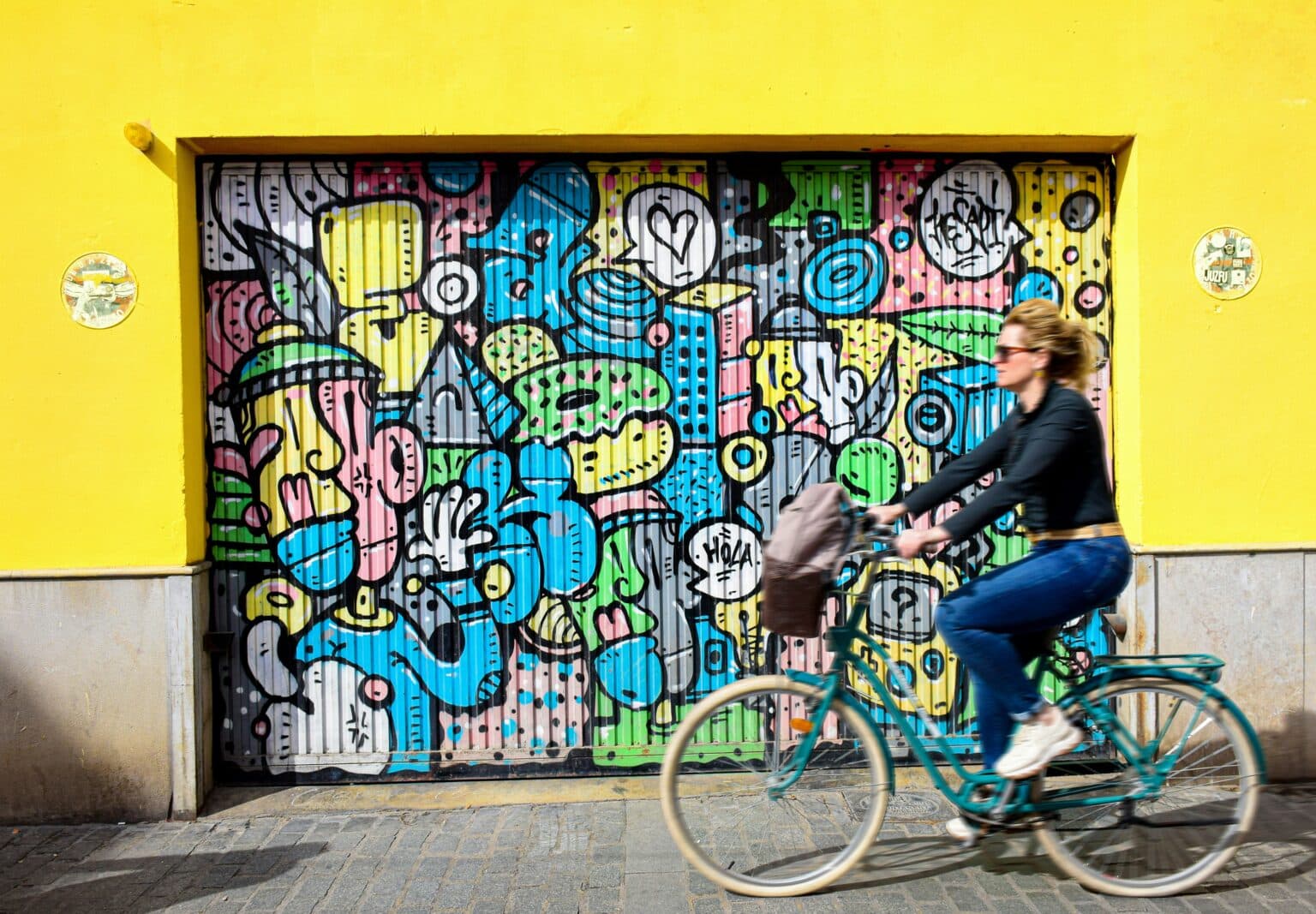This article explores sustainable choices and habits you can easily adapt to your travels on a personal level. Let’s see what aspects you could consider when planning your next trip.
Travelling, in general, can be very costly for the environment, and in the labyrinth of greenwashing, even with good intentions, it’s not so easy to find the right means to act greener. We can adopt certain mindset shifts when travelling and make lots of simple choices that do make a difference.
Decision-makers play a major role in the game, but we all contribute in one way or another. According to last year’s research by Booking.com, 76% of travellers say they want to travel more sustainably. What does more sustainable travel mean, and how do we get started?
The UN defines sustainable tourism as “Tourism that takes full account of its current and future economic, social and environmental impacts, addressing the needs of visitors, the industry, the environment and host communities.” All this is for the ultimate purpose of preserving the beauty and character of our surroundings for the next generations. In the meantime, we get to learn and experience a range of wonderful things solely by giving some thought to greener alternatives.
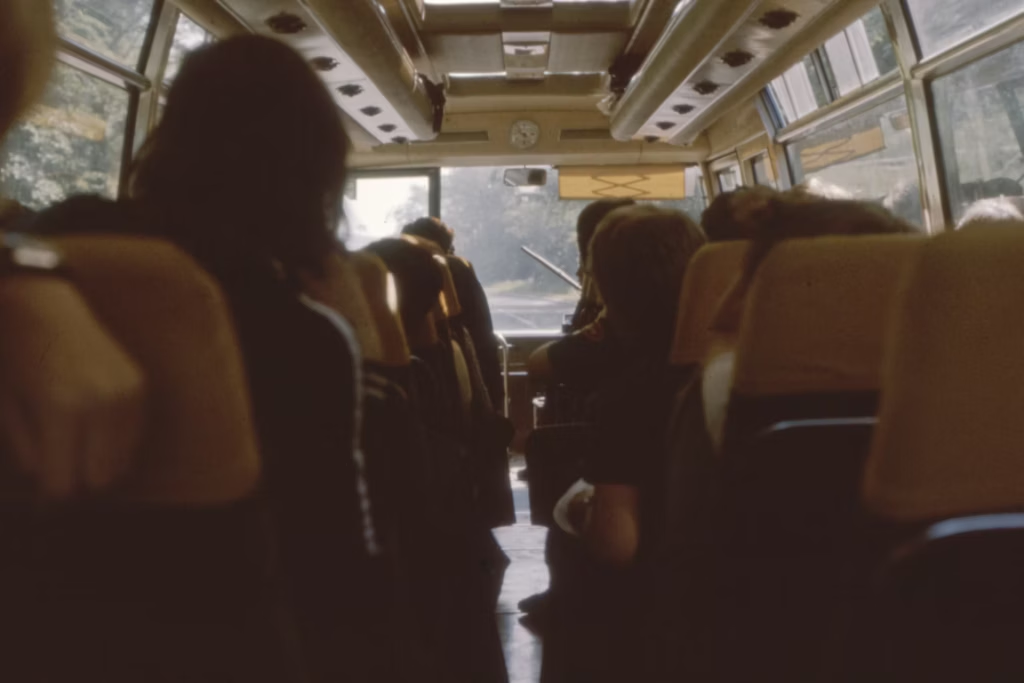
Choose Green Transportation
Transportation is, in most cases, the number one step when making plans. Here, travellers can have an extensive impact with only one journey. The pollution of one transatlantic round flight equals at least a yearly usage of a family car. This shows well how much impact a person’s single choice can have. If you can, try taking a train or bus instead of a plane.
Besides the environmental impact, there are many more qualities of conscious ways of travelling. Sometimes, you get to enjoy wonderful landscapes you would have never seen otherwise. During your slower and more sustainable travels, you have time to prepare for the change of environment and get your mind ready for what awaits you.
The number of great alternatives available that promote greener transportation worldwide is continuously increasing. For instance, Melbourne’s central city tram is free to use for both tourists and locals, starting a great initiative to reduce the use of cars. A positive shift has begun in building walkable and bike-friendly infrastructures as more and more cities invest in better pedestrian paths and bike lanes to encourage active transportation.
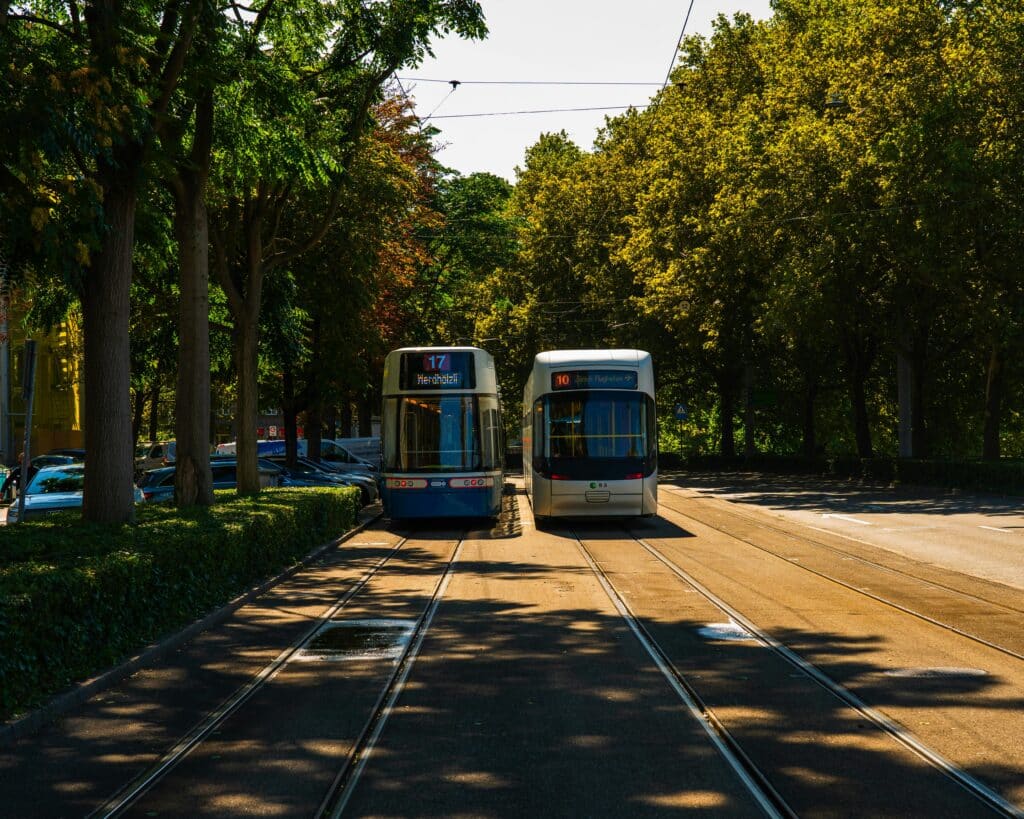
A big step forward that many cities have taken is making bike-sharing programs more accessible and improved. Most European cities have city bikes, so if you travel somewhere with this option, take it! It’s a great way of seeing more of the city on wheels and gives you a level of independence as well.
Our Spotters of Spotted by Locals wrote about lots of similar options you can choose from when using the app or website. To name a few, there are Bicikle(LJ) in Ljubljana, Bubi in Budapest and city bikes in Köln or Malmö. In countless cities like Edinburgh, Milan, Philadelphia, and Seattle, Spotters also recommended their favourite bike routes for a quick escape from the city. Some were so thoughtful they even wrote about the best bike repair workshops around, such as Vahagn did in Yerevan. So, if you’re ready to hop on two wheels in a new city but aren’t sure where to start, our articles might come in handy to discover.
Optimise Your Choices
Think about how you could tailor your travel habits in a way that puts the least possible burden on the environment. Let’s say you have family a few countries away. Maybe you need to travel for work, or you simply have always dreamed of visiting a certain destination far, far away. Something to start with is to consider optimising the frequency and destinations of your travels. Perhaps you could choose another means of transportation instead of flying there, or you could stay longer in one location, thus reducing the frequency of travelling you need to do. Dedicating some time to dig up possibilities to make more conscious choices can open up a bunch of exciting opportunities you may not have encountered if you went along with the usual means.
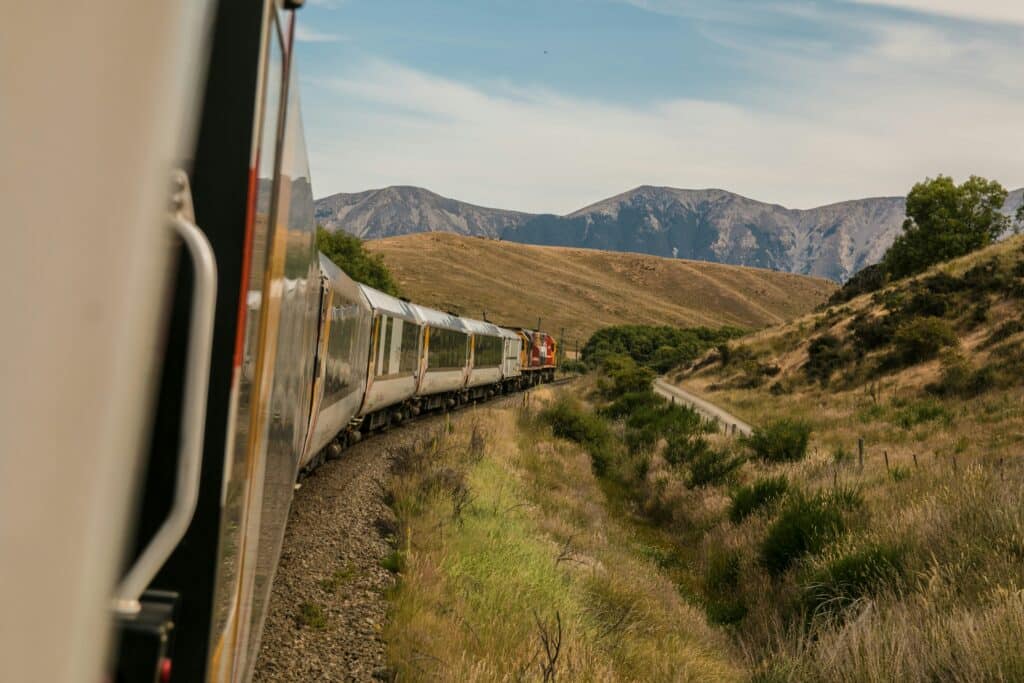
Discover Sustainable Accommodations
Accommodation is another key element when planning a trip. Social media is flooded with green choices, but how can you find the right places, and what aspects could be examined?
First of all, look out for locally owned hotels! How to do this? On many booking platforms, users can filter on locally-owned accommodation options. You can also check badges and certifications. Most platforms help you find green accommodations. For example, Booking.com has special badges to make it easy to find. If a property doesn’t waste food, uses green energy, has reduced plastic and water consumption, and more, it can be certified as green accommodation. Here, you can read more about green travel accreditation bodies.
Among multiple great initiatives, Fairbnb responds to the demand of people willing to travel sustainably very well; the company uses 50% of the platform’s fees to fund a project of your choice in the area you visit, while the rest they use to maintain Fairbnb’s network and operations, making it a very reasonable alternative for booking accommodations.

Explore ethical travel websites such as Responsible Travel. These can help you discover reliable and sustainable choices. You can also join travel forums and ask blogs or local travel boards for advice. Once you have some good options, read reviews and check social media to get an overall impression of the place. Last but not least, contacting your local connections is usually a very reliable way to find the most suitable locally owned options or get a reference for a place you are considering.
Locally owned accommodations are generally not hard to find, and your stay can be a mutually beneficial experience. Local people benefit from your stay, and you may be lucky to discover the faces of your destinations that you wouldn’t have seen otherwise. Even with this very small conscious choice, you contribute to the prosperity of local communities over hotels owned by multimillionaire foreign companies.
Building Local Connections
Staying at someone’s place can be a sustainable option as well. If you have connections at your destination, staying at their place can possibly give you a better understanding of the pace of an area, which, again, you couldn’t see otherwise. However, before asking for favours, it’s very important to evaluate the situation carefully and ensure that you do not misuse your hosts’ hospitality in any way. Customs vary across cultures, so doing a little research and avoiding asking your hosts for favours for more than a few days is suggested.
Similarly, platforms like Homexchange and Couchsurfing are all great alternatives to experience the real sides of your destination and keep your travels more sustainable and on budget.
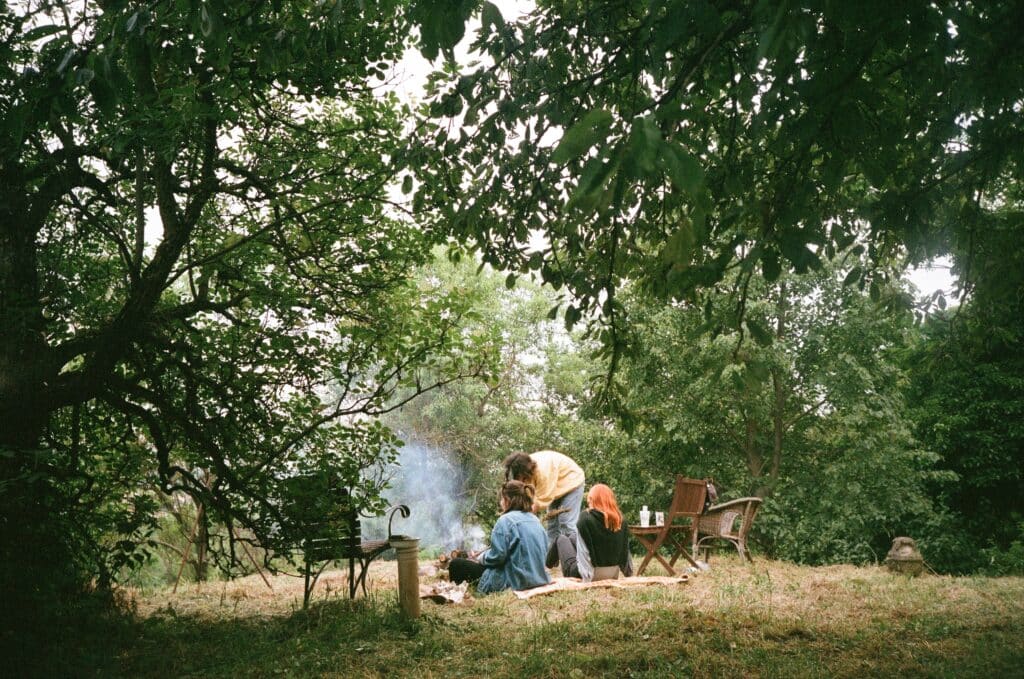
Get your Local Food and Drinks!
Visiting local businesses is valuable for both travellers and local businesses, but how do you find the right spots? Well, you are at the right place to ask around. Spotted by Locals aims exactly at providing answers to this very question. It shares with you tons of carefully chosen spots, handpicked by local insiders with much to tell and share with all curious travellers. Whether it be a café, restaurant, or something you wouldn’t even know to look for, you can find it with the help of the app and the website.
Our Spotters collected plenty of fantastic options on the app and the website, such as farmers’ markets, vegan and zero-waste bakeries, restaurants with sustainable food supplies and multiple other places with a conscious idea behind them worldwide.
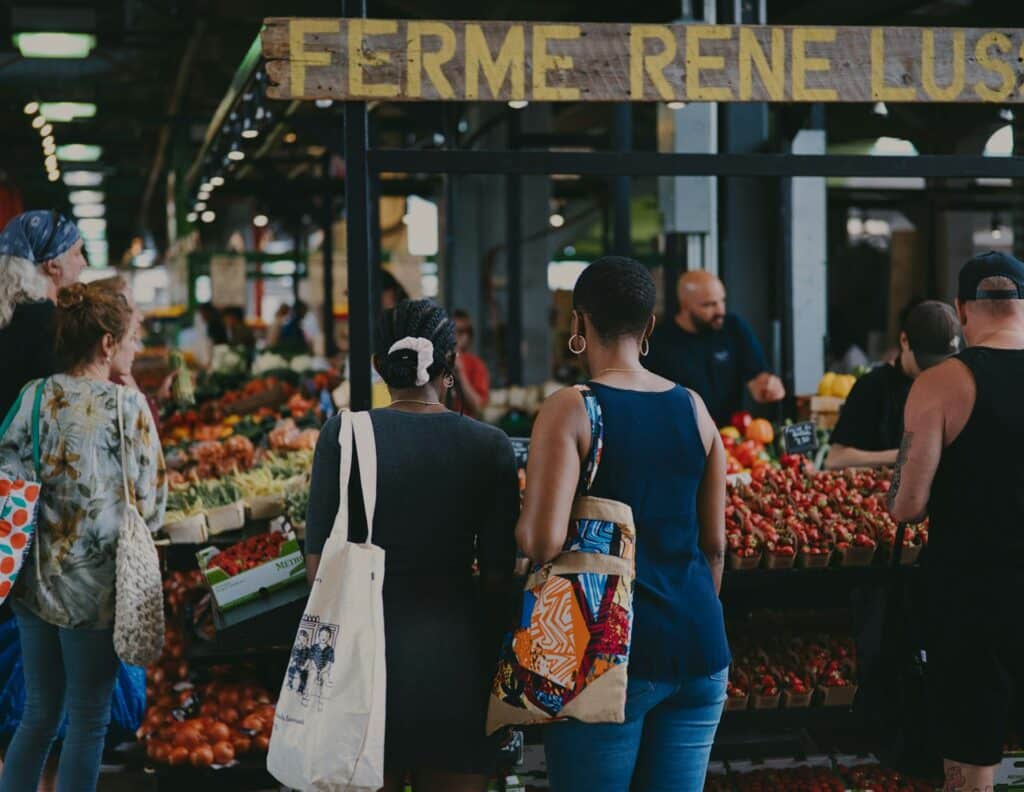
Support Local Economies & Communities
Ready to discover the area? Choose local tours! This way, you get an up-close insight and get closer to the character of the place with the help of people from the area. If you are looking for gifts to take home, buy something unique from a local store. Spotters of Spotted By Locals wrote about wonderful places with upcycled clothes, green shops, and local, natural cosmetics worldwide. Buying from these locally-run places not only supports sustainability — as the gift is likely to have a much smaller carbon footprint than those purchased from international chains — additionally, products made locally contribute to the local economy and offer an individual touch, as they are items you possibly couldn’t find at home.
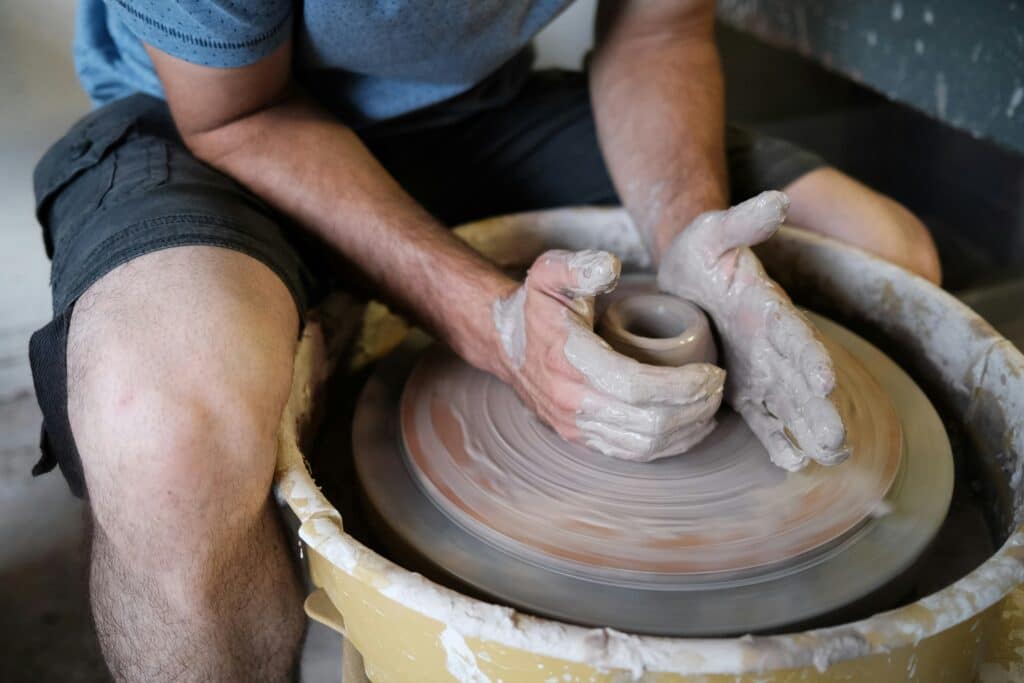
Travellers can participate in community projects in countless fun and intriguing ways. The right approach here is to try to make a positive impact when being there. You can, for instance, donate to local charities or volunteer while travelling; with a bit of research, you may find that there are more options than you’d think. In our October article, we wrote about travelling slow and all its benefits to the community, including the traveller and the environment. Read more about our trips for slow travel here.
Try Out Low-impact Activities
Looking out for eco-friendly alternatives? Cycling, hiking, or kayaking are top choices for actively spending time during your journey. Try choosing activities with a minimal environmental footprint. Why not keep in good shape while immersing in a new place during your journeys? Who knows, maybe you will find yourself fully devoted to a new hobby. Both your body and your environment will be grateful for it. Numerous new initiatives show us how much there is to explore when it comes to sustainable solutions. Including the plentiful previously mentioned cycling options our Spotters shared with us worldwide. If you are looking for something rather unusual, a fun example is the Parisians’ sightseeing boat powered by on-board workouts. Look for similar, memorable activities with some research at your destination.
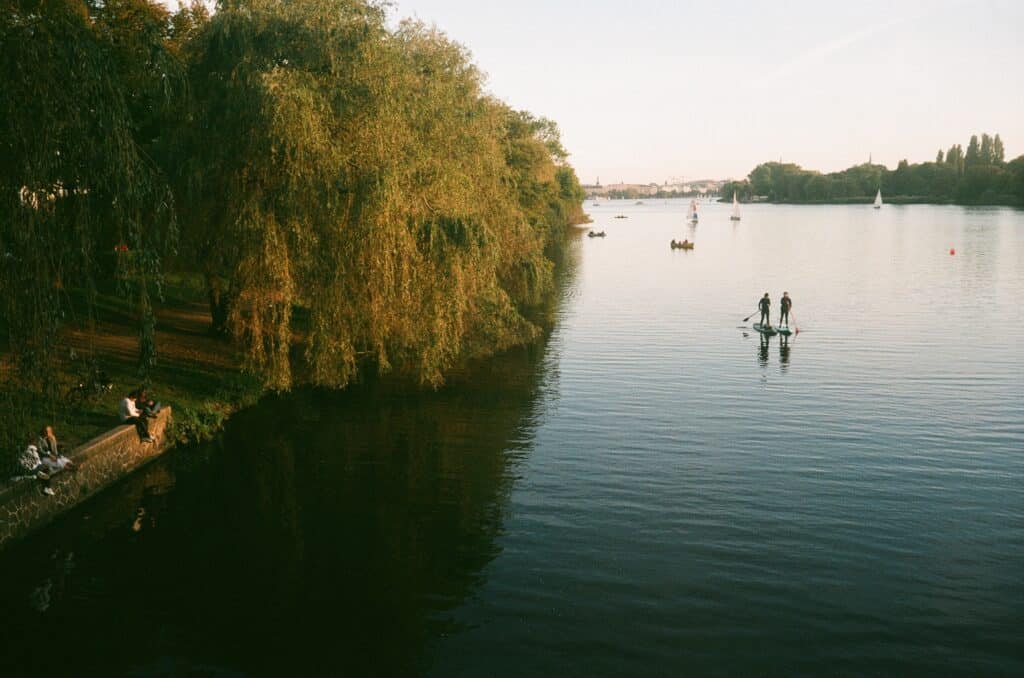
Off-season Travels
An endless number of advantages plead for travelling during quieter periods, yet it’s still an uncommon thing to do. Travelling off-season reduces overtourism and helps keep the balance of local business incomes, thus supporting local communities. Off-season travels are usually also significantly cheaper. You can avoid the crowd and dive into a more authentic vibe of the place.

Minimising Waste & Overconsumption
You can challenge yourself by minimising waste on the road. Try to take reusable products with you, starting with a water bottle, cutleries and packaging. Create your own sustainable kit for your travels. Besides reducing waste and potential littering, you also avoid having to rely on quick solutions that would lead you to tourist traps or low-quality, disposable products. Why couldn’t the ‘rule’ of only buying what you need apply to travel as well? People tend to lose up on spending when it comes to vacations. But if you think about it, there are hardly any reasons to purchase useless souvenirs for our beloved ones or to buy another pair of flip-flops just because we are on holiday. Whether you are on some wonderful islands or in a pulsing new city, think about what you need before instantly reaching for your purse.
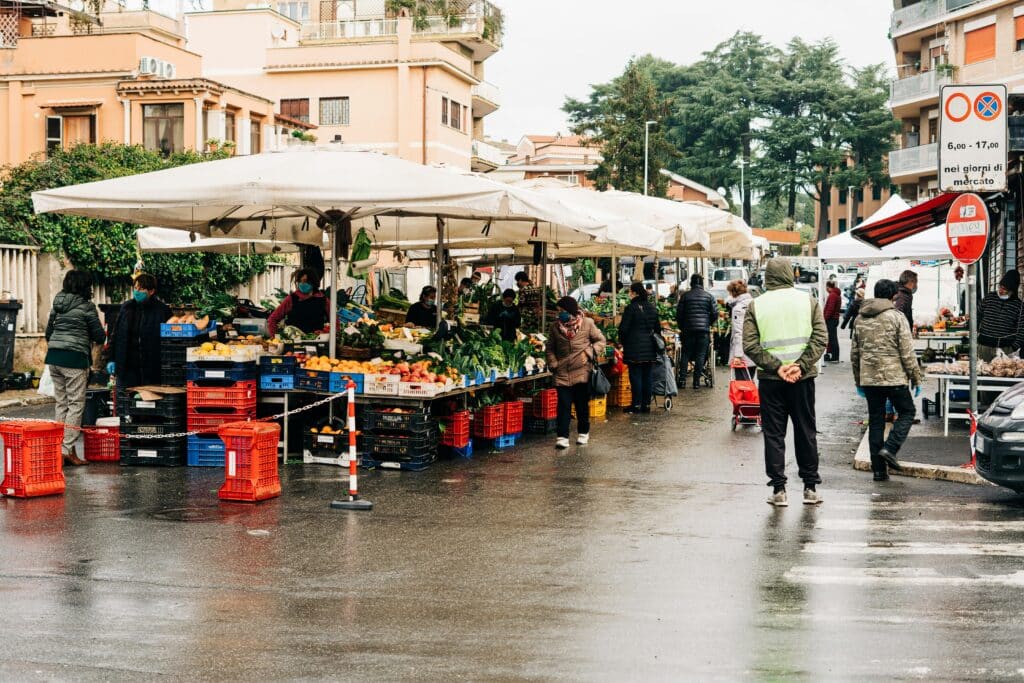
Dive into New Platforms & Apps
It might not be a big surprise if I say that a bunch of helpful tips are awaiting you on online platforms, flooding you with sustainable ideas and inspiring you to make conscious choices, but did you know that there is an array of apps and tools such as Wren or Earthly designed to assist you in calculating and offset your carbon footprint? Many of them provide useful information and practical ideas on the topic. Find some more helpful examples here! Connected to the previous section on food and consumption, there are great apps and devices to simplify food waste management and thus reduce food waste, such as Kitro, Good to Go and Phenix.
While keeping all these in mind, don’t forget to watch out for greenwashing. Many platforms and companies try to gain better PR by greenwashing themselves. Asking questions to yourself and fact-checking can help you notice if something is off with their credibility.
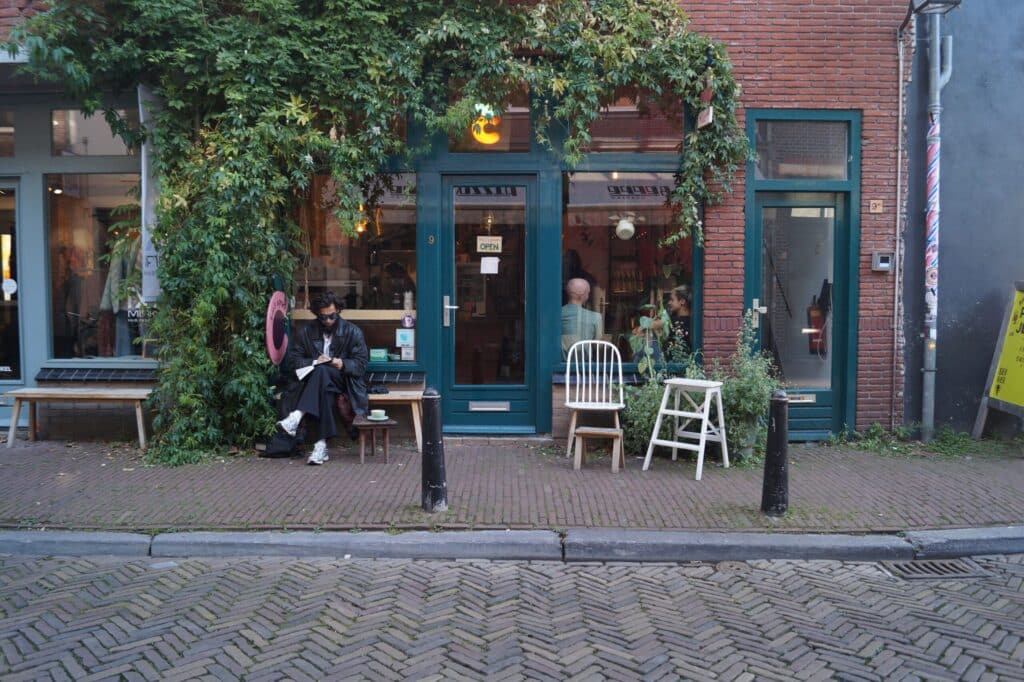
Quality Improvement of Tourism
What better reason to keep these ideas in mind than preserving biodiversity, improving our surroundings, supporting locals, and ensuring future generations can enjoy what we have today? Thinking beyond the dollars and only travelling in a way that takes the environment into thorough consideration can be a fun challenge for you to take on.
By rethinking the way we travel, we can realise a future where tourism protects and respects our planet and its cultures and avoids environmental damage. Beyond the sustainability factor, these efforts also improve the overall quality of tourism and enrich our experiences while exploring our destinations.

About the author | Eszter Baracskai lives and works in Budapest. She is a Spotter and editor for Spotted by Locals, holds a Master’s degree in Cultural Diplomacy and is currently pursuing a second Master’s in Translation and Interpretation.
